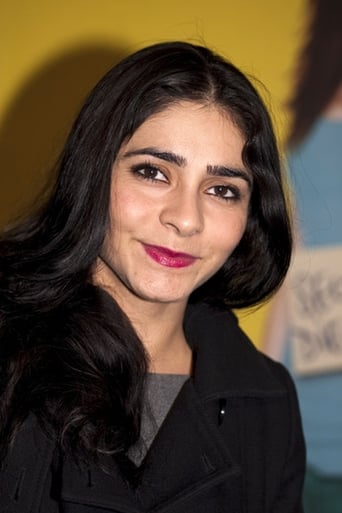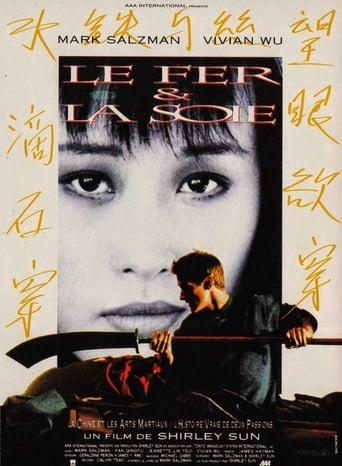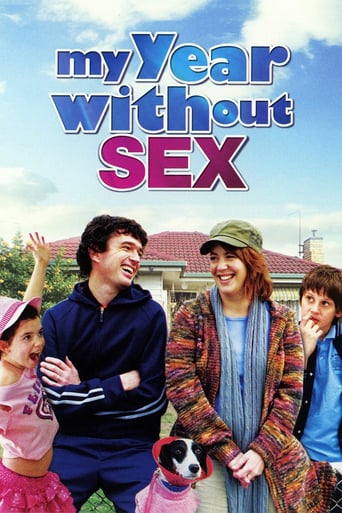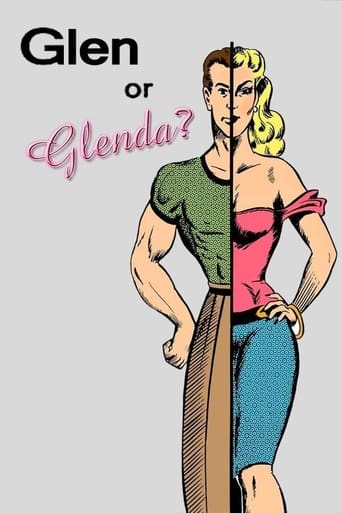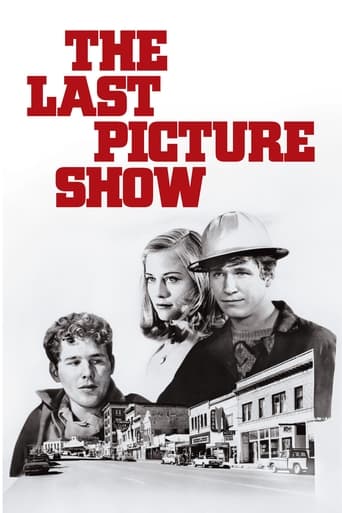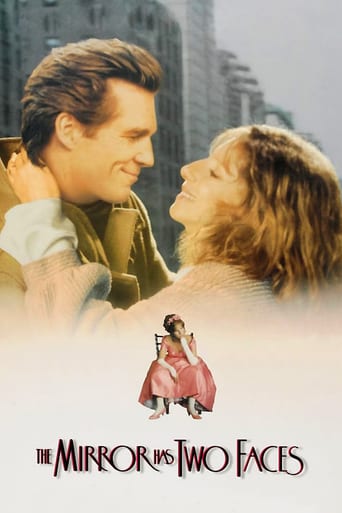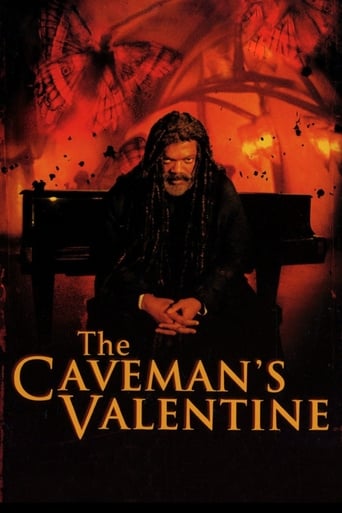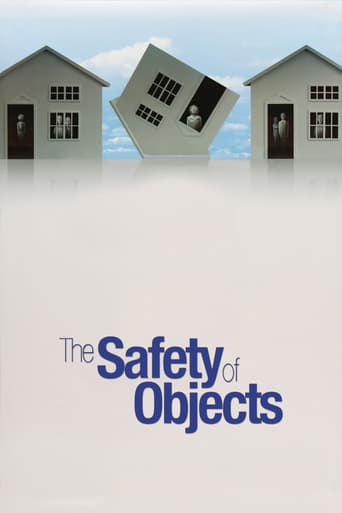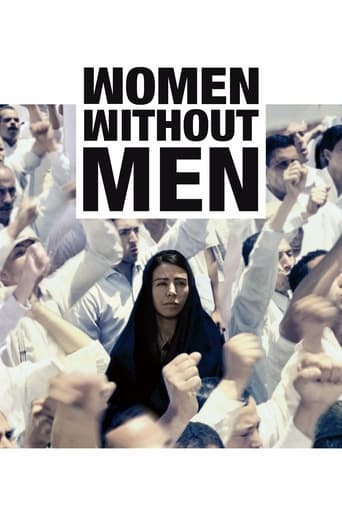
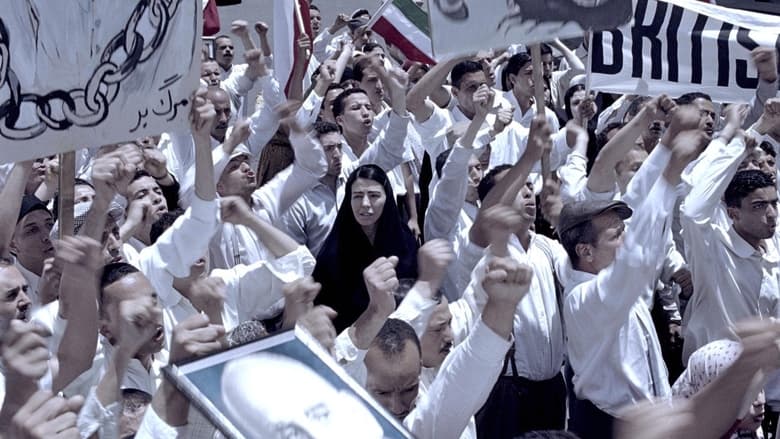
Women Without Men (2009)
Against the tumultuous backdrop of Iran's 1953 CIA-backed coup d'état, the destinies of four women converge in a beautiful orchard garden, where they find independence, solace and companionship.
Watch Trailer
Cast


Similar titles
Reviews
I think this is a new genre that they're all sort of working their way through it and haven't got all the kinks worked out yet but it's a genre that works for me.
If you don't like this, we can't be friends.
This is a dark and sometimes deeply uncomfortable drama
It's simply great fun, a winsome film and an occasionally over-the-top luxury fantasy that never flags.
bad movies are just bad,cause they are nit done well, have no scripts, or terrible actors, lighting is wrong and above all director is just far off the line of what movie making is all about. this terribly bad film has it all in it. and all that shows how invaluable, stupid, and worthlessness all world festivals are all together to get all these stupid films merits and awards. man i was almost wet in my pants as it went on every 10 minutes. bad movie from a good artist, but hell who said all artists should make films. this one is out of pure complexions from an artist who wants to be taken seriously as an director. sorry girl, you have miles to go to get there . go back to your art
My take on the movie was more metaphoric than the reviews I've read about this movie. The lives of the characters in the movie represented different elements of Iranian society, full of contradictions where clashes and hopes live side by side. The 1953 democratic revolution was perceived differently by different elements of Iranian society. The key point of the film, as I see it, is manifested through the four women, who represented various forms of struggle within the Iranian society, and the gardener, who represented the core of Iranian culture, with a focus on creating beauty and providing hospitality to all.I see Zarin, the prostitute, portraying the victimization of Iran, which had been suffering from abuse inflicted on her by various elements that humiliate her, robbing her of her dignity with complete disregard to her pain and true desires. Zarin's soul was awakened by a visit from the gardener who offered her hope of a new start through the wind of change that was taking shape through the political awakening that was promising revolutionary changes. She runs away from the brothel and is seen in a public bath furiously rubbing her body in a symbolic way of ridding herself of her sins/victimization as a first step toward regaining her dignity. She then walked into the garden of hope where she found peace and became part of the garden to be nurtured by those victims who represent the masses of the Iranian people who found hope of a better future for Iran through the revolution. They felt strong connections to Zarin and needed her to heal in order for their hope to be realized. Zarin's silence throughout the movie reflects the absence of her voice (Iran's voice) in the political process, an effective way of portraying the country's victimization by the Shah's dictatorship, and his backers, the West.Munis, the sister, was victimized by the culture/religious restrictions (manifested through Amir, her brother) who isolated her and prevented her from participating Iran's political process, thus limiting her role in society to a mere servant. Munis' frustration led her to destroy her body in order to liberate her soul. Her spirit was finally liberated and joined the revolution by embodying one of the leaders of the revolution.Faeza, the friend of the sister, portrayed the majority of Iranian women who are traditionally and culturally compliant. She has no interest in any political changes. Her only aspiration is to live according to traditions by getting married and be a good wife. Her conscious was tested when she witnessed her friend Munis' suicide in frustration over her brother control. She imagined her friend calling on her to set her free, which she did; but while she wandered the street in pursuit of her friend's spirit, she was raped by two traditional men, causing her to lose her innocence and feel ashamed. She then became an outcast and destitute and in need of help. Munis' spirit guided her to the garden of hope where she met with the other victims (women) and together they formed a support group spirited by the revolution which they hoped would bring them rejuvenation and a better life. But in order for their aspirations to come true, the revolution, embodied by Munis, must survive. Unfortunately, the Shah, backed by the CIA, killed any hope of liberation by instigating a coup led by the Shah and the corrupt elites of Iranian society.The wife of the general represent ed the upper class/intellectuals of the Iranian society who dreamed of a meaningful and fulfilling life that would allow her to grow .The man who nurtured the garden represents the essence or foundation of Iran itself where all are welcome and hope is eternal. The magical garden the general's wife purchased is a place where hope lives and die.
The director Shirin Neshat has in "Zanan-e bedun-e mardan", made a visually stunning and important film, with a lot of good acting performances. Especially by Pegah Ferydoni(as Faezeh), and Arita Shahrzad (as Farrokhlagha). When you walk out of the cinema after having watched this movie, the real world will for a time seem a bit more colorless and unreal.With the military coup of the Shah of Iran in 1953 as a background, four women find out the price for freedom. And through them, the audience find out the price and value of freedom for themselves. The film also draws the historical lines between the democratic Iran of the early 1950s, and the "Green movement" of today.
This was a highly ambitious Iranian film following the lives of several women in 1950s Iran. It may be of interest to American viewers in that the backdrop to the movie is the 1953 coup, where the CIA, in support of an absolute monarch (the Shah), helped overthrow a democratically elected government. That assumes that anyone is still interested in finding out "why the world hates America", I think it's become passé to ruminate on that now. But if you flick CNN on and see the latest wranglings with Iran, well here is where the story started, it's a good idea not to start reading at chapter 56.The main focus of the film though is the treatment of several Iranian women by the society in which they live, and their retreat to a magical garden without men. It's an awesomely ambitious adaptation of a famous novel of the same name by Shahrnush Parsipur (who has a cameo appearance as the brothel madam). It's not particularly successful, I don't like saying that, but I think even Shirin Neshat, who was present for the screening was not happy with the finished article, which took a very long time to film. She has simply tried to weave too many strands. The most successful story perhaps is of the young prostitute Zarin, who is anorexic and actually played very well by a Hungarian actress, Orsolya Tóth. It's no surprise to me that Neshat actually made a 20 minute short starring the same actress in 2005 called Zarin, which was very well received.In the Women Without Men, Zarin, who runs away from a brothel is seen furiously rubbing her body raw in some public baths. She speaks not a single word in the whole movie, and that is the most effective condemnation of the society she lives in.We can see some of the terrible attitudes prevailing then and perhaps now as well about women. Amir Khan (played very ably by Essa Zahir) at one point approaches one of the women (Faezeh played by Pegah Ferydoni) and gives her this line about how women are flowers who blossom and then wither. He then asks her to become his second wife; his first wife, who has withered, will "of course" become her servant. Khan has absolutely no idea of the level of misogyny he's communicating. One of the women is a general's wife, her husband ends an incredibly oafish rant with an order for her to come and eat some melon because he wants her to. In the movie we see a distillation of the unfortunate insensitivities to which a group of Iranian women have been subjected. It's important to note that it would be an overreaction to condemn Iranian male society en masse.It's a very beautiful movie, the garden of the villa that the general's wife sets herself up in after a very scandalous separation, is really very magical and shot wondrously. I was worried that the movie was getting a bit lost in it's quest for aesthetic perfection, and thusly becomes almost soporific. The stories of the different women became a bit cacophonic, there was no unison message. It's got to be pretty unbalanced as well, men are almost uniformly comedy sketch buffoons, the women martyrs.



